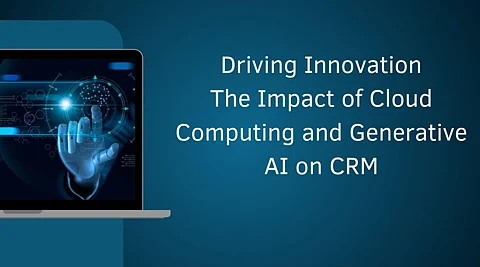

In this modern era, the fusion of cutting-edge technologies like cloud computing and generative artificial intelligence (AI) is revolutionizing customer relationship management (CRM) systems across industries. This article explores the innovations driving the future of customer engagement, drawing on insights from Chandrasena Cheerla, a leading voice in technological transformation. Through this deep dive, we uncover how these advancements are reshaping the way businesses connect with their customers.
Cloud computing has become the backbone of modern CRM systems, transforming them into scalable, efficient, and accessible platforms. By leveraging cloud technology, organizations can process massive datasets with remarkable efficiency. Current systems handle an average of 5.2 million transactions daily while maintaining 99.95% uptime. Such scalability supports real-time customer interaction, enabling businesses to respond instantly to queries across multiple channels.
Moreover, cloud CRM platforms have reduced operational costs by 47%, proving to be a cost-effective alternative to traditional on-premise systems. Businesses have experienced a 39% improvement in data accessibility and a 43% boost in cross-departmental collaboration. This foundation ensures that CRM systems are not only robust but also adaptable to dynamic market needs.
Generative AI takes CRM functionality to the next level, particularly in personalization and automation. AI algorithms analyze customer interactions, identifying trends and preferences with 83% accuracy. This enables businesses to forecast customer behavior, reducing churn rates by 29% and improving inventory optimization by 34%.
AI-powered tools also enhance customer support through intelligent automation. For example, chatbots now resolve up to 70% of routine inquiries without human intervention while maintaining a 78% customer satisfaction rate. Additionally, natural language processing engines achieve a 92% intent recognition accuracy, enabling systems to deliver contextually relevant responses. These advancements result in a 55% improvement in first-contact resolution rates and a 60% reduction in handling times.
Cloud computing and generative AI have found diverse applications across sectors:
Retailers adopting AI-driven personalization have reported a 33% increase in average order values and a 27% improvement in customer retention. Advanced inventory systems reduce stockouts by 38%, ensuring better customer satisfaction. Dynamic pricing, virtual shopping assistants, and tailored recommendations further drive a 42% increase in conversion rates.
In financial services, AI optimizes fraud detection and compliance monitoring. Systems achieve a 57% reduction in fraud detection times with 99.97% accuracy. Personalized advisory platforms boost customer engagement by 48%, with recommendations predicting client needs and preferences with 82% precision.
Healthcare providers use AI-enhanced CRM tools to improve patient care and operational workflows. With a 35% reduction in administrative workloads and a 29% decrease in patient wait times, AI supports better resource utilization. Furthermore, predictive analytics contribute to a 28% improvement in patient outcomes, offering tailored treatment plans.
Cloud computing and AI combined in CRM systems bring benefits that go far beyond immediate metrics. Organizations state that workflow automation and task management improve employee productivity by 45%. AI systems prevent 42% of potential customer issues proactively, thus enhancing customer satisfaction and loyalty.
The integration of AI-CRM also rests on predictive analytics, which predict 78% accurately the needs of the customers. Businesses that used such insights were able to witness a 41% decrease in customer churn rates and a 36% rise in customer advocacy. These numbers represent the incredible power of such technologies in promoting strong, long-term customer relationships.
Despite the merits of cloud-based and AI-driven CRM systems, there are difficulties in implementing such systems. Chief among these difficulties is data security, which concerns 63% of organizations surveyed. Integration can also be extremely expensive, with complete solutions averaging a cost of $850,000. Talent shortages pose another challenge because 68% of companies can't find AI-CRM specialists.
Advancements are also happening on edge computing, voice recognition, and augmented reality. Such technologies would shape the future waves of CRM innovation. Edge-enabled systems are growing by 31.5%, whereas voice recognition technology is becoming so accurate to understand customer interactions to the point of 95% accuracy. Both these trends in the offing promise better efficiency and effectiveness from CRM solutions.
In a nutshell, Chandrasena Cheerla outlines how the combination of cloud computing and generative AI is changing the CRM systems in ways that open up new possibilities for business organizations to better optimize customer engagement and streamline operations. Organizations can then fully leverage the power of these innovations, thus raising the bar on personalization, efficiency, and predictability in customer relationship management.
